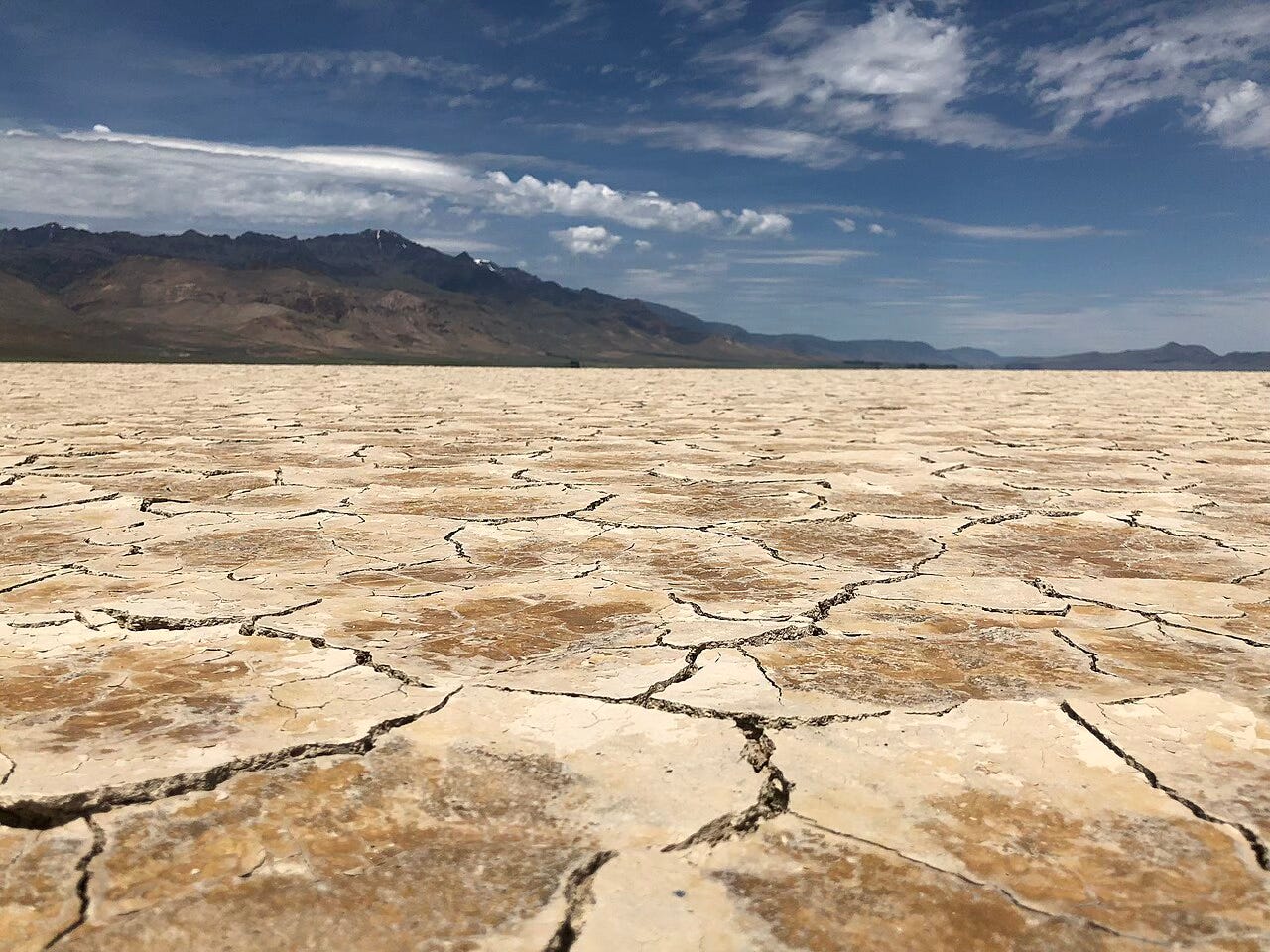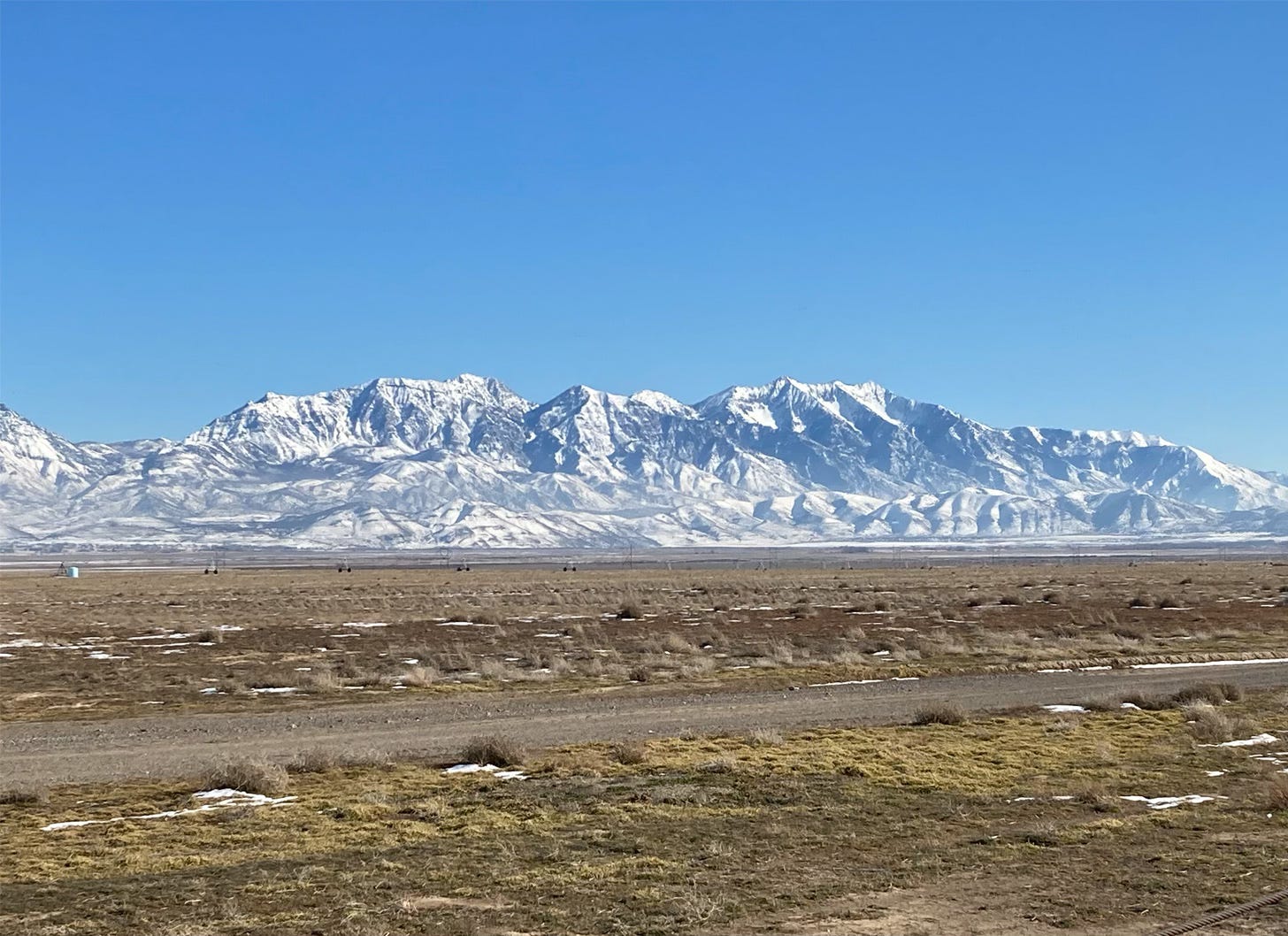Praying When God Doesn't Answer
Psalm 22 and the prayers of the forsaken

If you haven’t gotten the 40 Days of Psalms prayer calendar yet, well, here’s another chance. It will walk you through praying one psalm a day through Easter.
Until the holiday, each midweek post will be a reflection on one of that day’s psalms. From today’s (21-24), I’ve chosen Psalm 22.
In these, I won’t necessarily revisit how to pray in response to Scripture. If you’d like help with that, I’d suggest starting with In 2025, Pray the Bible. A handful of other recent posts build on the idea, including Pray a Psalm Right Now.
Mark wanted to talk to me about Jesus.
A longtime friend, we’d stayed in touch even after he moved to a different state. When I emailed him links to sermons, he listened to them. When I called him, he was eager to talk about the Lord. It was the kind of dialogue I’d hoped for so many times with so many people, only to be disappointed.
On the surface, the conversations came easily. Mark always spoke warmly to me. I don’t remember him raising any doubts about anything the Bible said. And yet, each phone call ended with me feeling increasingly concerned. My prayers for him became more and more desperate. Still, God didn’t seem to respond.
Spiritual interests, you see, weren’t the only thing consuming Mark’s life at that time.
He was also drinking himself into oblivion.
Centuries after they were written, Jesus spoke the first words of Psalm 22 from the cross:
My God, my God, why have you forsaken me?
Psalm 22:1, Matthew 27:46, Mark 15:34
To be forsaken means to be abandoned. If the Father and the Son are one, as Jesus says in John 10:30, how is this even possible?
We may not be able to answer that question. But if we’re willing to ponder it, we can peer into the harrowing, unknowable depths of what the Savior gave for our salvation.
Coming from Jesus’ mouth, these words take on an air of divine mystery. But originally, around a thousand years before Christ, they were a more practical plea. When David, the king of Israel, first prayed them, he hoped for a here-and-now rescue from flesh-and-blood enemies. “Deliver my life from the sword,” he appeals in verse 20 of the same psalm. It wasn’t a metaphor.
While Psalm 22 doesn’t reveal the circumstances that brought it about, David’s life was filled with trials. At one point, he was on the run from Israel’s first king, Saul, who wanted him dead. Later in life, he was betrayed by his own son, Absalom. Whatever the background of this psalm was, David was in agony:
My God, my God, why have you forsaken me?
Why are you so far from saving me,
so far from the words of my groaning?
O my God, I cry out by day, but you do not answer,
by night, and am not silent.
Countless believers, down through the centuries, have discovered how these verses express the heart’s deepest groanings. They resonate when God seems absent. When he seems to have fallen silent. When prayers go unanswered.
And yet, like moonlight in eclipse, God’s goodness remains, even when it’s hidden. That’s why psalms that begin with sorrow or doubt often shift gears to praise at some point. This change happens swiftly in Psalm 22. Beginning in just the third verse, we find:
Yet you are holy,
enthroned on the praises of Israel.
In you our fathers put their trust;
they trusted and you delivered them.
But his recollection of how God delivered past generations causes David’s sorrows to resurface. God is holy, yes, of course. And he rescued previous generations of the faithful from their enemies. But this makes the fact that he isn’t intervening now all the more baffling and painful. In verse 6, the despair of the opening verses returns:
But I am a worm and not a man,
scorned by men and despised by the people.
The first half of the psalm continues with this seesaw rhythm. Soon we find another section of praise. Here, David recalls how God has been faithful to him from the earliest days of his life. Yet before long, he’s once again pleading for deliverance from his opponents.
The pattern is something like:
Where are you, Lord?
My God, I completely trust you.
But you seem to have forgotten me.
Lord, I remember your faithfulness.
But I’ve still got these enemies on every side!
I experienced a similar back-and-forth as I prayed for Mark. One conversation ended with a note of encouragement: he’d met some Christian neighbors.
Lord, please use these believers to persuade him to get the help he needs.
Then, the next time we spoke, his speech was badly slurred.
Rescue him from the mouth of the lions, Lord (Psalm 22:21).
A faint glimpse of hope would emerge, and then soon vanish. The cycle repeated. Many who have tried to help an alcoholic know this pattern. Soon, Mark had traveled far down the road of self-destruction. His body was beginning to fail. He was in the hospital, then back out. Then back in again, this time for longer. The flashes of encouragement became rarer and more fleeting.
All along, I knew I was praying for two miracles. I was asking the Lord to give Mark the gift of everlasting life. I was also begging God to smash his chains of sin and addiction.
I still hold out hope that the Lord answered one of those prayers.
My strength is dried up like [a fragment from a clay jar],
and my tongue sticks to the roof of my mouth;
you lay me in the dust of death. (Psalm 22:15)
Mark died in the spring.
I wasn’t in touch as much toward the end. By then, my wife and I had welcomed our first child, and life was overflowing with new responsibilities. In Mark’s final months, we knew time was short. We had been talking about me making a visit. We were still trying to figure out the timing when then the end came.
He robbed himself of what could have been the prime years of his life. One of the cruelties of early death is that your real memories of a person become intermingled with the scenes you can’t help but imagine.
A few years before he died, Mark really did come visit us at our faded yellow house in a small Rocky Mountain town. He parked his RV in the driveway, right next to one of the plum trees. He brought steaks, and I grilled them up while we talked like old times and looked on at the jagged peaks to the East.
Yet now, when I go back to that day in my mind, my kids are there, running around in the grass. They’re sprinting up to Mark, their heads thrown back, laughing. He can’t get enough of them.
But they weren’t born yet, and that part didn’t happen.
And now it never will.
In the Garden of Gethsemane, Jesus pleaded with his Father to spare him the crucifixion. He said, “Abba, Father, everything is possible for you. Take this cup from me.” (Mark 14:36a)
This was the cup of God’s wrath, the penalty for humanity’s sins, to be poured out on the sinless Savior. The Father, of course, did not spare his Son that fate.
Jesus’ own prayer went unanswered.
Oh my God, I cry out by day, but you do not answer, by night and am not silent. (Psalm 22:2)
And yet, the Messiah carried on. After asking his Father if he might escape the suffering of the cross, Jesus continued:
Yet not what I will, but what you will. (Mark 14:36b)
At times, it can feel like this is the only prayer we are left with.
And it is enough.




Thanks, David, for sharing this.
Thank you for writing this, God bless you